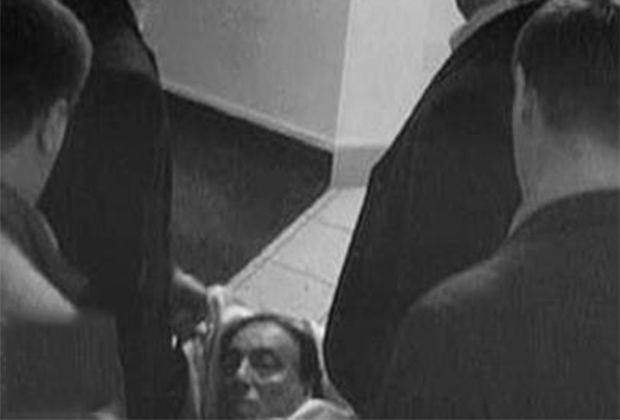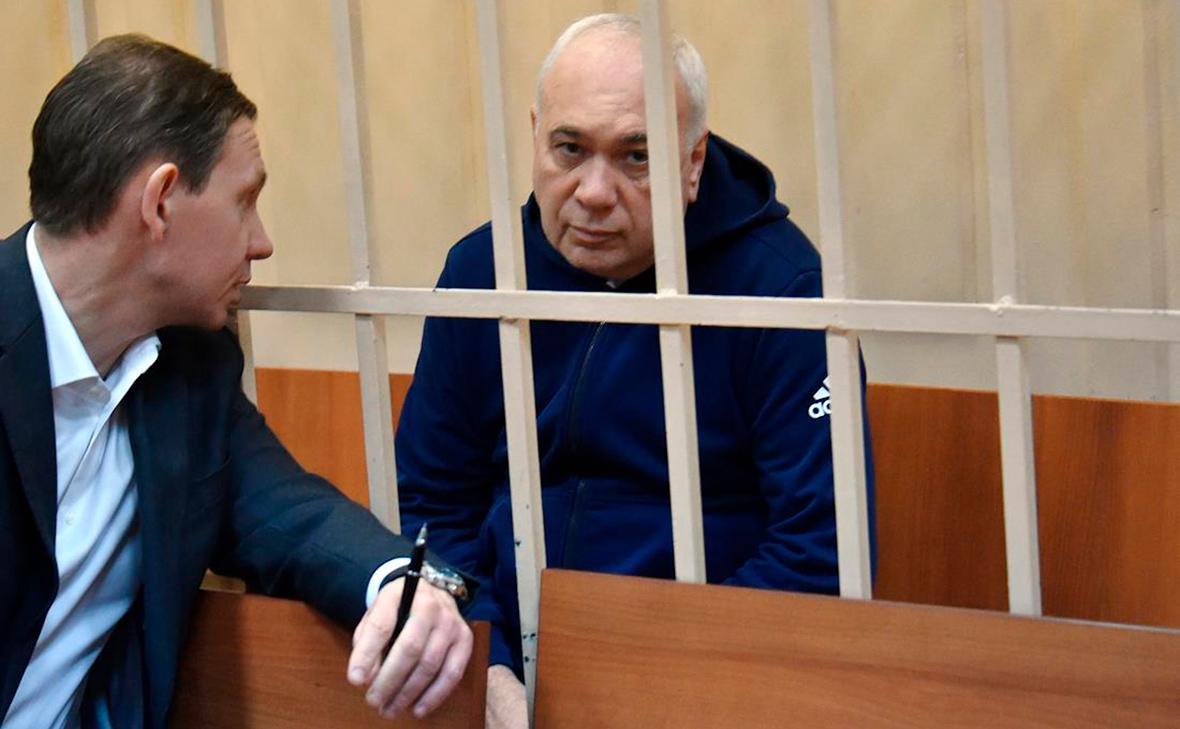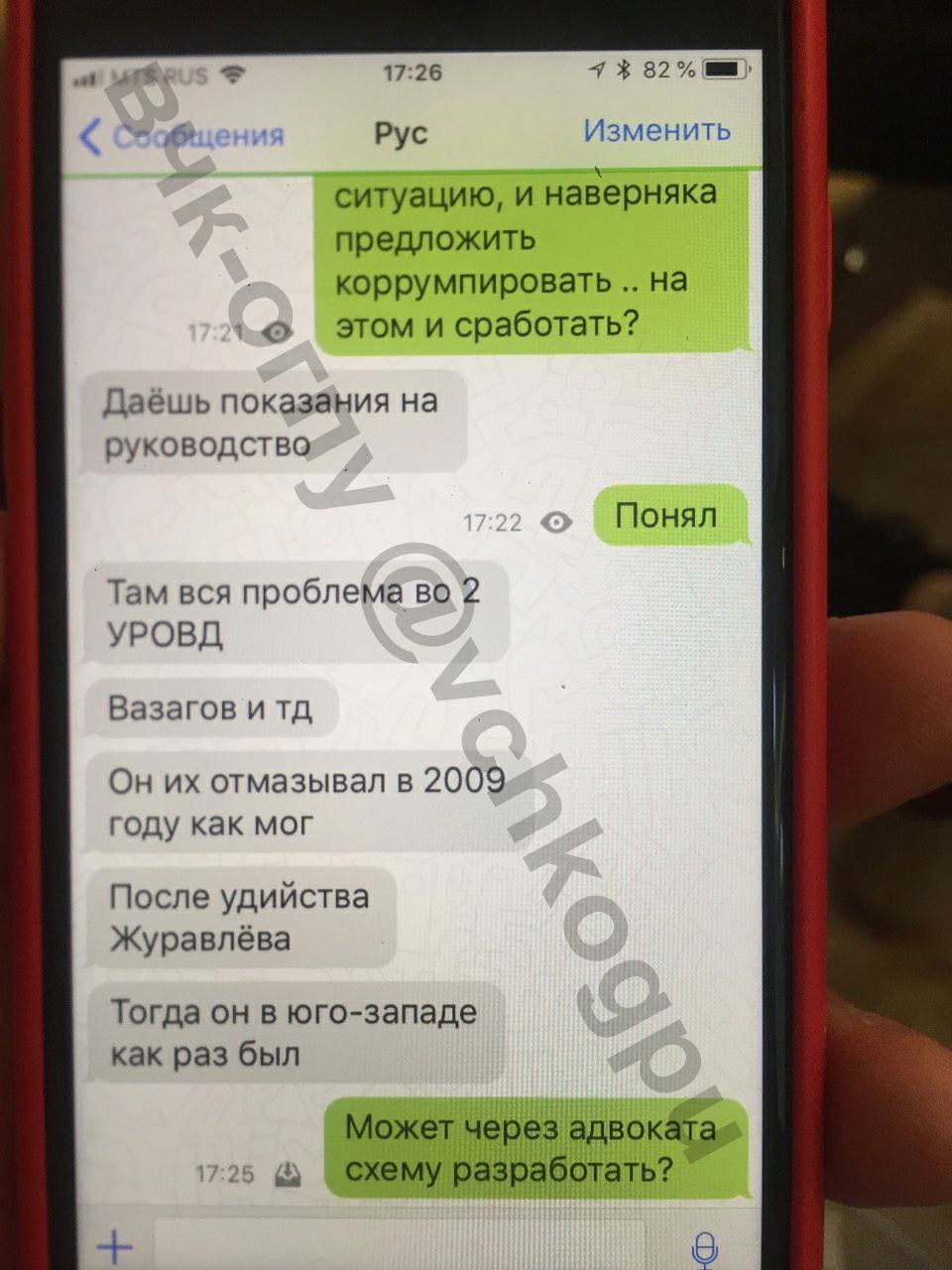
The leader of the Taganskaya organized crime group (OCG), Grigory Rabinovich (Grisha Tagansky), died in the Moscow pre-trial detention center “Matrosskaya Tishina”. OCG killers committed dozens of murders, including high-profile ones. The organized crime group had a team with unique equipment that was engaged in surveillance of people. Even the GRU used its services. It has never been a secret who the Taganskys killed, including for the security forces. However, for a long time, Grisha Tagansky and another leader of the organized crime group, Igor Zhirnokleev, evaded responsibility by corrupting many representatives of the law enforcement system. The official reason for Rabinovich's death was heart failure (who would doubt it), but he died, as never before, on time. There was a trial going on over Rabinovich and Zhirnokleev, and they were facing life sentences. And, as you know, nothing makes a person extremely talkative like a life sentence with serving in the vicinity of polar bears. It was expected that Grisha would speak there and tell all the details to which of the law enforcement officers and how many left the common fund, what eliminations were carried out for them, etc. Now he definitely won’t tell. And Zhirnokleev, having seen the fate of his friend, will be silent. As in the case of the Taganskys themselves, who helped them from law enforcement is also not a secret. The VChK-OGPU Telegram channel has already named these people, now Rucriminal.info will remind you. Let's start with the current deputy head of the Main Investigative Directorate of the Investigative Committee for Moscow, Vladimir Vazagov. He bought this place and holds on to it solely because he is “inscribed” in the corruption schemes of other security officials and law enforcement officers.

According to Rucriminal.info, there was a fierce “war” with betrayal, corruption, etc. around this case. ICR investigator Nikolai Tutevich, despite all this, managed to bring the case to fruition. What happened with the “Tagansky case” can be understood from the archive of “wiretapping” by Andrei Volontir, who for a long time collaborated with the Directorate of the FSB of the Russian Federation and the Moscow FSB Directorate, and recorded all conversations.
According to the Investigative Committee, on the orders of the authorities of the Tagansk organized crime group, the head of Rospishcheprom, Valery Zhuravlev, was liquidated in 2008. As follows from the correspondence of Ruslan Petryakov, an employee of the 8th Department of the Directorate of the FSB of the Russian Federation (provides operational support in the “Tagansky case”), the involvement of the leaders of the organized crime group Zhirnokleev, Rabinovich and Grekov (who is wanted) in the murder of Zhuravlev was established back in 2009. Then they all should have ended up behind bars. According to Petryakov, Vladimir Vazagov, who headed the Investigative Committee of the Investigative Committee for the South-Western Administrative District of Moscow, “smeared” the Taganskys at that time. He also helped them in the future.
Then the materials collected on Vazagov were not allowed to proceed. Moreover, Vazagov bought (this was also established) and his friend Boris Lavrenev, for a bribe in the form of several apartments, was lobbied for the position of deputy heads of the Main Investigative Directorate of the Investigative Committee for Moscow. Lavrenev's good friend lobbied the deputy head of the Department of M, Oleg Menzhinsky. When all these facts “came to light”, they were simply not given any official treatment. Menzhinsky and Lavrenev were fired. And Vazagov, thanks to the fact that he became a participant in corruption schemes, remained in his position and remains in it to this day.In one recording, Volontir speaks with an employee of the 8th Department of Directorate “K” of the FSB, Ruslan Petryakov, who provided operational support in the “Tagansky case.” In turn, Volontir is the victim and applicant in the Taganskys - they squeezed large plots of land from him in the Moscow region.

Initially, the Tagansky case was opened by the Main Investigative Directorate of the Investigative Committee for Moscow, and then the Central Administration of the Investigative Committee took it away and it was transferred to the proceedings of Tutevich. However, senior employees of the Main Investigative Directorate of the Investigative Committee for Moscow continued to be involved in the investigation.
Volontir is indignant at Petryakov that these employees take money both from Tagansky and leak information to them, and from Volontir himself (he paid 150 thousand dollars). Petryakov is interested in whether Vladimir Vazagov is the recipient of the money (at that moment he was in the development of the FSB for connections with the Taganskys since 2009, and then became a partner of the “developers”. This is a common practice of Directorate K)). But Volontir says that this is another high-ranking employee of the Main Investigative Directorate of the Investigative Committee for Moscow - Denisov. Petryakov is confident that Tutevich himself will not allow himself to be drawn into corruption games (this is what happened). But he promises to go to Tutevich to “drink vodka” and discuss everything.
Further, Volntir and Petryakov discuss the injustice of providing state protection from the FSB (often this service is commercial and is bought by large businessmen). Petryakov admits that half of the witnesses in the case of the leaders of the Tagansk organized crime group Zhirnokleev (Zhirny) and Rabinovich need state protection, but they are “sent” with their protection, and it is not clear to whom they give it. “State defense is a disaster and an eyesore,” notes Petryakov.
After the death of the “Schultz” authority, Igor Zhirnokleev subjugated the remaining militant brigades of the Taganskaya organized crime group, the “economy” of the organized criminal group was led by Grigory Rabinovich, and connections with law enforcement officers and officials were maintained by a former paratrooper with three diplomas, Vladimir Grekov.
Russia The investigation into the Taganskaya organized crime group is partly based on materials from the “Spanish dossier”. It was collected by the Spanish authorities during the investigation into the former junior partner of the Tagansky businessman Alexander Romanov. In these materials you can often find the names of the same leaders of the Tagansk organized crime group Zhirnokleev, Rabinovia, Grekov. From the materials regarding Romanov, thousands of sheets of documents were isolated proving that Zhirnokleev, Rabinovich, Grekov are gangsters who are siphoning hundreds of millions of dollars out of Russia, are involved in murders and are associated with famous people in Russia. These documents arrived in the Russian Federation. According to the VChK-OGPU telegram channel, these documents indicate that the Taganskys are closely connected with billionaire Gavriil Yushvaev and Alexander Torshin. The latter was 1st Deputy Chairman of the Federation Council, then Deputy Chairman of the Central Bank of the Russian Federation. Then Torshin was an adviser to the head of Rosselkhozbank Boris Listov.
The successful biography of Alexander Romanov, the presence of wide connections and his own money attracted the Taganskys, who decided to put him in the 2000s in the alcohol industry, which was reviving after the collapse. First, Romanov became the director of the Kristal plant, and then they decided to make him the head of the state-owned Federal State Unitary Enterprise Rosspirtprom, which then owned vodka and alcohol production factories throughout the country. For this appointment, the Taganskys gave the AP employee $10 million, but did not take into account that the alcohol industry had already been informally assigned to the supervision of Arkady Rotenberg. Romanov and the Taganskys were warned about this, advised and convinced that it was not worth climbing, but Zhirnokleev was confident of victory. The money was eventually returned to them, but it was too late - Romanov, indicative of everyone, ended up in a pre-trial detention center. After that, Alexander Torshin tried not to communicate personally with Zhirnokleev and Rabinovich. The liaison was, as a rule, Romanov’s wife, Natalya Vinogradova, who was friends with Torshin and his wife.
According to Rucriminal.info, during a search, Zhirnokleyev was found to have the ID of an active GRU colonel; Zhirny himself told investigators that if he had started talking, he would have made everyone a general.
The victim and main witness in the Taganskaya organized crime group case is businessman Andrei Volontir. For a long time, in the interests of the Directorate K of the FSB of the Russian Federation, he participated in operational activities, often as a decoy, and at the same time he recorded absolutely all his conversations with officials and security forces, thus becoming the custodian of a huge archive of audio incriminating evidence. On August 25 last year, Volontir found himself under arrest for the first time and was admitted to pre-trial detention center 99/1 (“Kremlin Central”).
According to the telegram channel VChK-OGPU, it is surprising that Rabinovich lasted in the isolation ward for so long, considering how many Tagansky “thieves in law” and “authorities” are on their account.
There was a member of the organized crime group, Yuri Malinovsky, who led the unit of the organized crime group, which was engaged in operational work, wiretapping, and external surveillance. During the searches, equipment comparable in its level to that used by the intelligence services was seized. The most interesting thing: the criminal case contains materials indicating that the GRU and the FSB used the surveillance and wiretapping services of the group. Yuri Malinovsky spoke about the persons who were monitored on the orders of the leaders of the Tagansk organized crime group. Many of them were later killed. According to the source, Malinovsky also described in detail how surveillance was carried out on thief in law Aslan Usoyan - the day before he was shot by a sniper. This was done on the orders of Zhirny, who also ordered the allocation of a “Val” assault rifle from the group’s arsenal for the operation.

Timofey Grishin
To be continued
Source: www.rucriminal.info
Комментариев нет:
Отправить комментарий